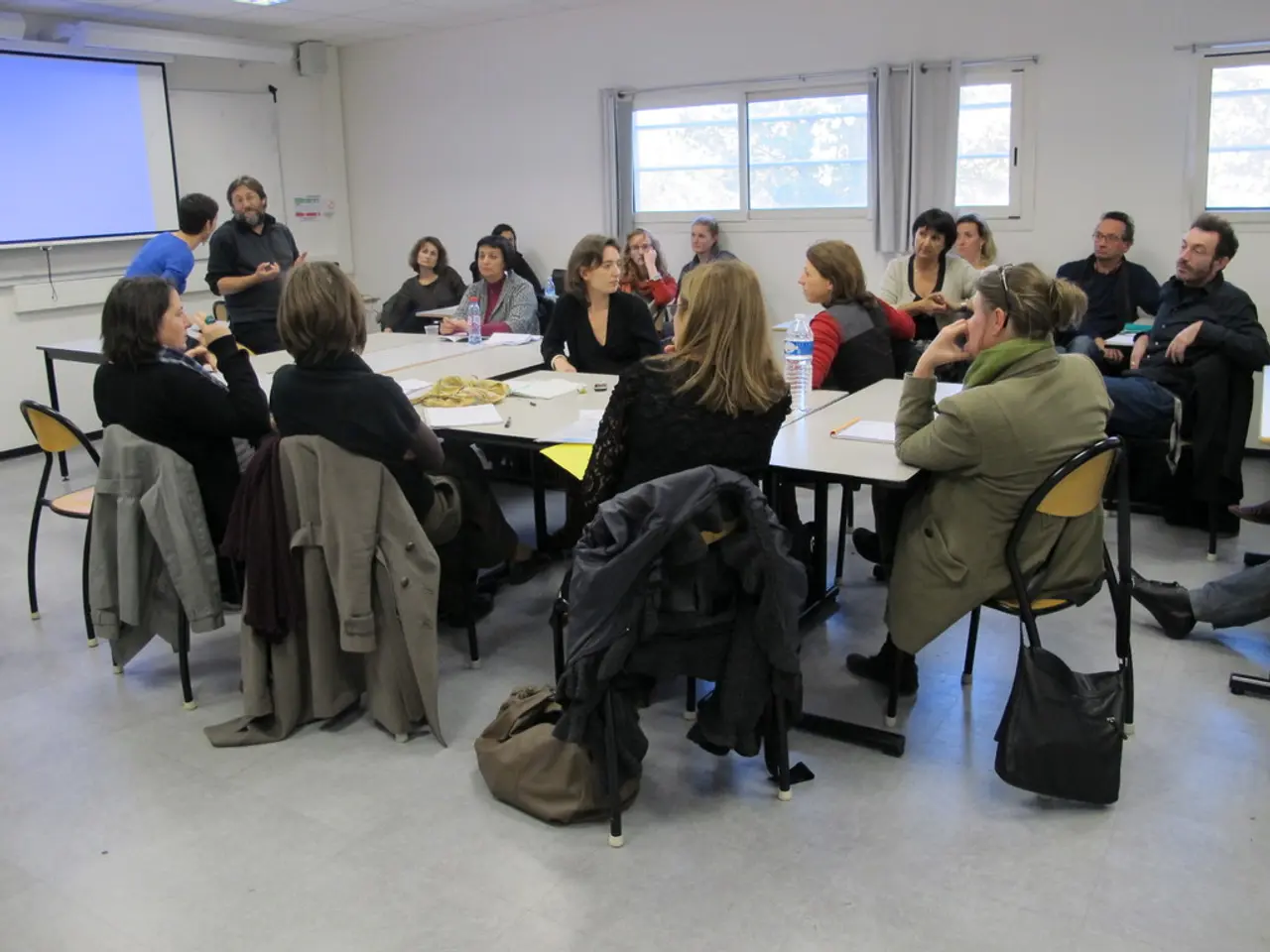Strategies for Enhancing Social Interaction in School, Workplace, and among Introverts
In today's world, forging connections with others is a crucial aspect of life. Whether you're feeling lonely or seeking deeper relationships, there are several strategies that can help you increase your socialization.
Firstly, finding common ground is key. This could be as simple as a shared interest, an activity, a time of the day or week, or even a preferred mode of communication. For instance, striking up a conversation with a cashier about a shared hobby can be a great icebreaker.
Icebreakers, such as "What kind of music do you like?", "Have you been watching any good shows recently?", or "Do you play any sports?" can help stimulate a conversation and pave the way for deeper connections.
Another effective approach is active listening. This involves allowing people to answer questions without interruptions, nodding or making small interjections, reflecting or elaborating on what they say, and being genuinely curious about their perspective. Asking follow-up questions can further deepen the conversation.
For those who find social interactions challenging, starting small can be beneficial. Engaging in brief, low-pressure interactions in everyday contexts can help build confidence. Practicing social skills through role-playing or behavioral rehearsal can also boost confidence in social settings.
Spending time in public spaces can help individuals get comfortable with social exposure before joining groups or clubs. Engaging in acts of kindness or volunteering can foster connections with others and promote positive feelings. Building self-esteem gradually can also reduce anxiety and increase willingness to engage socially.
For individuals with significant social avoidance, such as those with Avoidant Personality Disorder (AvPD), psychotherapy methods like cognitive-behavioral therapy (CBT), interpersonal therapy, and social skills training are recommended to address entrenched fears and improve social functioning.
Lastly, for introverts and individuals with a limited social battery, managing energy levels is crucial. Identifying pain points and pleasure points, scheduling mindfully, taking small breaks, and learning how to recharge are all important strategies for maintaining a healthy balance of social interaction and personal time.
In conclusion, sociability differences stem from a complex mix of innate temperament, past experiences, and learned behavior patterns. However, incremental practice and supportive interventions can often enhance social engagement effectively, leading to a more fulfilling and connected life.
Read also:
- Inherent Skills Know No Bounds, Yet Access to Employment Remains Unequal: Suggestions for a More Equitable Job Market of the Future
- Harnessing Crowdsourced Research for the Preservation of Australia's Enchanting Wildlife Species via SeadragonSearch
- Indonesia's fresh 10-year power acquisition scheme signals a positive shift towards reinforcing renewable energy: as perceived by investors and the JETP office.
- Emancipate from deceptive faiths: a compelling handbook







